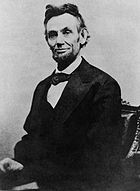 There's been a lot of cheering and excitement about the fact that transit travel is growing while automobile travel is falling. These are good trends, no doubt. I looked at some statistics at the Bureau of Transportation Statistics. This is what I noted:
There's been a lot of cheering and excitement about the fact that transit travel is growing while automobile travel is falling. These are good trends, no doubt. I looked at some statistics at the Bureau of Transportation Statistics. This is what I noted:For 2006, passenger miles on transit were about 52,000,000,000 miles
For 2006, passenger car travel was about 2,650,000,000,000 miles--50 times greater.
So let's say transit represents approximately 2% of all travel. I believe it's actually less than this, but we'll use 2% for argument's sake.
Global climate change requires us to make drastic and enormous changes in our emissions from all sources, including transportation. I live in Washington DC where our Metrorail and Metrobus systems are often running at or above capacity (we do better than 2%, but it's still a single digit percentage of all trips in the region), and this year they are talking about service cuts. Cuts due to budget pressures that will not relieve any congestion in the system--and certainly not help provide better service so we can reduce greenhouse gas emissions.
So what if we need to increase that percentage from less than 2% to
 something like 20% or 50%! in order to deal with climate change. After all, we can't just keep driving cars 2.6 trillion miles per year. Reducing that 2.6 trillion just a little to 2 trillion by shifting to transit would require a 12-fold increase in transit capacity! What does that mean for your transit system? What would it require to make a 10- or-20-fold increase in capacity. When we talk about increasing transit, our goals are tiny, modest fractions of this kind of increase.
something like 20% or 50%! in order to deal with climate change. After all, we can't just keep driving cars 2.6 trillion miles per year. Reducing that 2.6 trillion just a little to 2 trillion by shifting to transit would require a 12-fold increase in transit capacity! What does that mean for your transit system? What would it require to make a 10- or-20-fold increase in capacity. When we talk about increasing transit, our goals are tiny, modest fractions of this kind of increase.Well, I'm sorry; we're doomed. It will be at least 16 years between the first real plans to build the Silver Line out to Dulles airport and its completion (longer, if you also count the time it was being thought about, proposed and debated). The FTA issued a decision on a short, 5-mile extension of BART in 2006 that will open 8 years later in 2014. I've been hearing a drumbeat for Bus Rapid Transit as a great solution to many transit issues, yet there are few examples of successful systems, and almost every proposed system is small in scope, running behind schedule or bogged down in the idea stage.
How can we possibly increase the capacity of our public transport systems by an order of magnitude if takes decades to complete a single project?
Well, I can't see how our current public agency model for creating and operating and expanding transit will be up to the task. Lincoln said it best:
 "The dogmas of the quiet past, are inadequate to the stormy present. The occasion is piled high with difficulty, and we must rise -- with the occasion. As our case is new, so we must think anew, and act anew."
"The dogmas of the quiet past, are inadequate to the stormy present. The occasion is piled high with difficulty, and we must rise -- with the occasion. As our case is new, so we must think anew, and act anew."The occasion is global climate change, and we must think and act anew. Somehow we need to change the model for transportation such that the private sector benefits from providing transportation with close to zero emissions. Private streetcar companies built thousands and thousands of miles of lines in just a couple of decades around a hundred years ago. Some streetcar barons made millions of dollars in the process. Was that good or bad? Well, no one in our transit agencies is incentivized by millions of dollars in potential profits and are not consumed by entrepreneurial zeal.
I don't know what the right answer is, but I know the wrong answer is just to keep doing what we're doing now--just a little better or a little faster or a little different. Somehow we have to think and act anew.




No comments:
Post a Comment